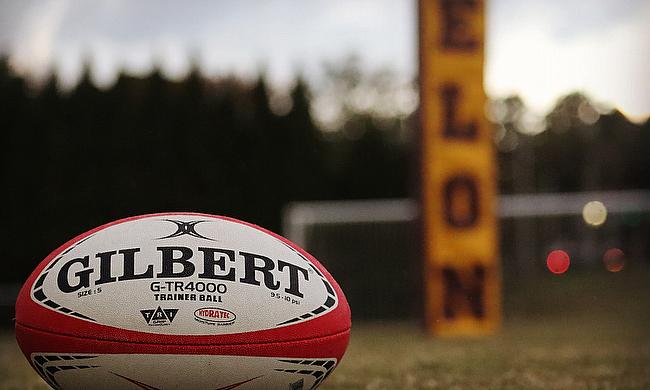Essential Actions to Take Immediately After an Injury Incident
Accidents can happen when you least expect them to occur. Whether at work, home, or outdoors, injuries need fast action. What should you do right after an injury incident strikes?
The first few moments matter more than most people realize. Taking the right steps can protect your health and your rights. Delay or confusion can make things worse for everyone involved.
This guide will show you what to do immediately. Each action helps ensure your safety and future recovery.
Are you ready to handle an injury emergency with confidence? Keep reading to learn the most essential actions you must take.
Ensure Safety and Check for Immediate Dangers
The very first step after any injury is ensuring safety. Look around quickly to check if the area is still dangerous. Avoid fires, broken glass, or falling objects that could cause more harm.
Move yourself and others to a safer spot if possible. Do not rush or make sudden moves that could worsen the injury. If you are injured badly, stay still and call for help.
Make sure others don't get injured trying to assist. Staying safe prevents a bad situation from becoming even worse. Safety always comes before anything else after an incident.
Seek Medical Attention Without Any Delay
Even minor injuries should be checked by a health professional. Some injuries seem small at first, but grow worse later. Call emergency services or visit a nearby clinic right away.
Tell the doctor everything about how the injury happened. Explain how you feel, even if it seems unimportant. Early treatment helps prevent long-term damage or infection.
Never try to treat serious injuries by yourself. Medical records are also useful if you need to explain the injury later.
Acting fast can help with healing and future support. Always take injuries seriously, no matter how small they seem.
Report the Incident to the Proper Authorities
Report your injury to the right people as soon as possible. If it happened at work, inform your boss or supervisor. If it occurred in public, notify building staff or management.
Make sure the report is in writing and includes key details. This helps you if legal or insurance questions come up later. Try to report what happened accurately and without guessing.
Mention the time, place, and people who saw the event. A report supports your story and makes sure your case is documented. Don't wait days to report-do it the same day if you can.
Document the Scene and Gather Evidence
Take pictures of the injury and where it happened. Use your phone or ask someone nearby to help if needed. Photos help explain what happened better than words alone.
Also, take pictures of anything that caused the injury. Write down the names and numbers of anyone who saw the event. Ask witnesses to describe what they saw, and if they agree.
Keep copies of medical papers, reports, or other important records. Evidence keeps your case strong if problems arise later.
Don't rely on memory alone-collect proof while the facts are still fresh. Good evidence can protect your rights and story.
Limit Communication About the Incident
Avoid talking too much about the incident with others. Be careful about posting details online or sharing photos. What you say can be misunderstood or used against you later.
Talk only to trusted people like doctors, family, or a personal injury attorney. They can guide you through the right steps legally and safely.
Avoid signing papers or giving statements without advice. Stay polite if someone asks questions, but don't explain everything.
The wrong words can cause problems down the road. Limiting talk helps protect your privacy and your injury case's strength.
Track Your Medical Treatment and Recovery
Start a notebook or digital file about your recovery process. Write down every doctor visit and what they told you. Keep all receipts for medicine, travel, or therapy sessions.
Record your pain level daily to show how you feel over time. This information shows how the injury has affected your daily life. A clear record can help with insurance or legal claims.
Share updates only with professionals helping your case. Following your treatment plan also helps healing faster.
Do not skip appointments, even if you feel better. Staying organized can support your claim and improve your health.
Understand Your Rights and Legal Options
Every injury case has rights you should fully understand. You may be owed help for lost wages or medical costs. Speak to someone who knows injury laws in your area.
They can explain what steps to take and avoid mistakes. Legal advice makes sure your case is fair and strong. Not knowing your rights may lead to lost support or money.
A legal expert helps you act on time before deadlines end. Don't wait too long to get help, or it might be too late. Understanding your rights helps you stand strong after an injury.
Consider Speaking With a Legal Professional
Sometimes, handling an injury situation gets too big to manage alone. You may face insurance companies, paperwork, or questions you don't understand. This is when a legal professional becomes helpful and necessary.
They know how to protect your rights and deal with tricky situations. A personal injury attorney NYC from a trusted firm can guide you properly. They understand local laws and how to build a strong case.
With their help, you won't be left guessing or confused. Reaching out early can make a big difference in the result. Legal support ensures you're treated fairly from start to finish.
Take Smart Steps to Protect Your Health and Rights
Injury incidents can feel overwhelming, but the right actions matter most. Acting quickly helps protect both your health and your future. Safety, medical care, and clear records all work together to support your case.
You don't have to go through this process alone. Understanding your rights and getting the right help builds confidence.
Following these steps gives you the best chance for healing and support. Don't delay when injury strikes-take smart action right away.
Did you find this article helpful? If so, check out the rest of our site for more informative content.


